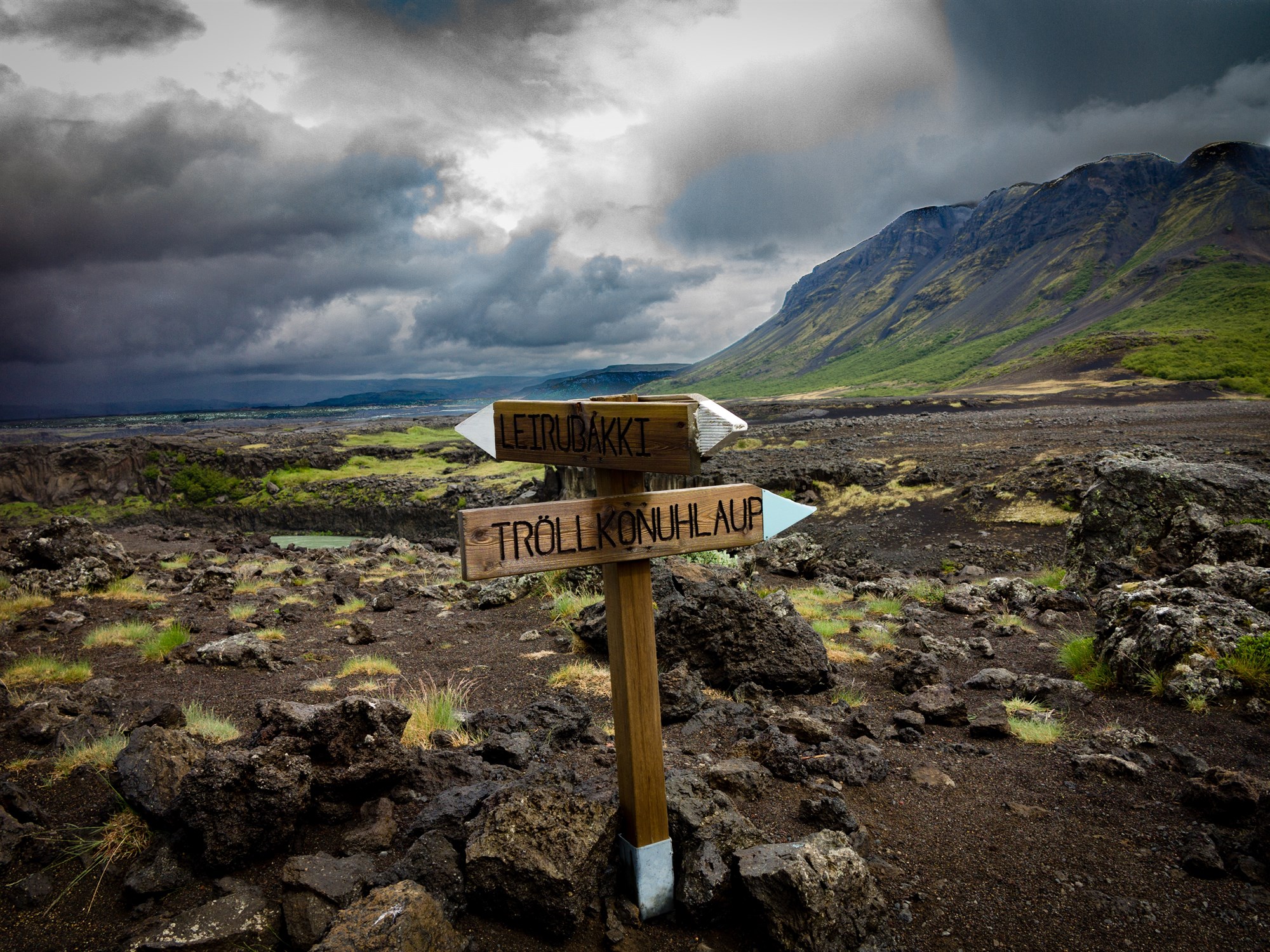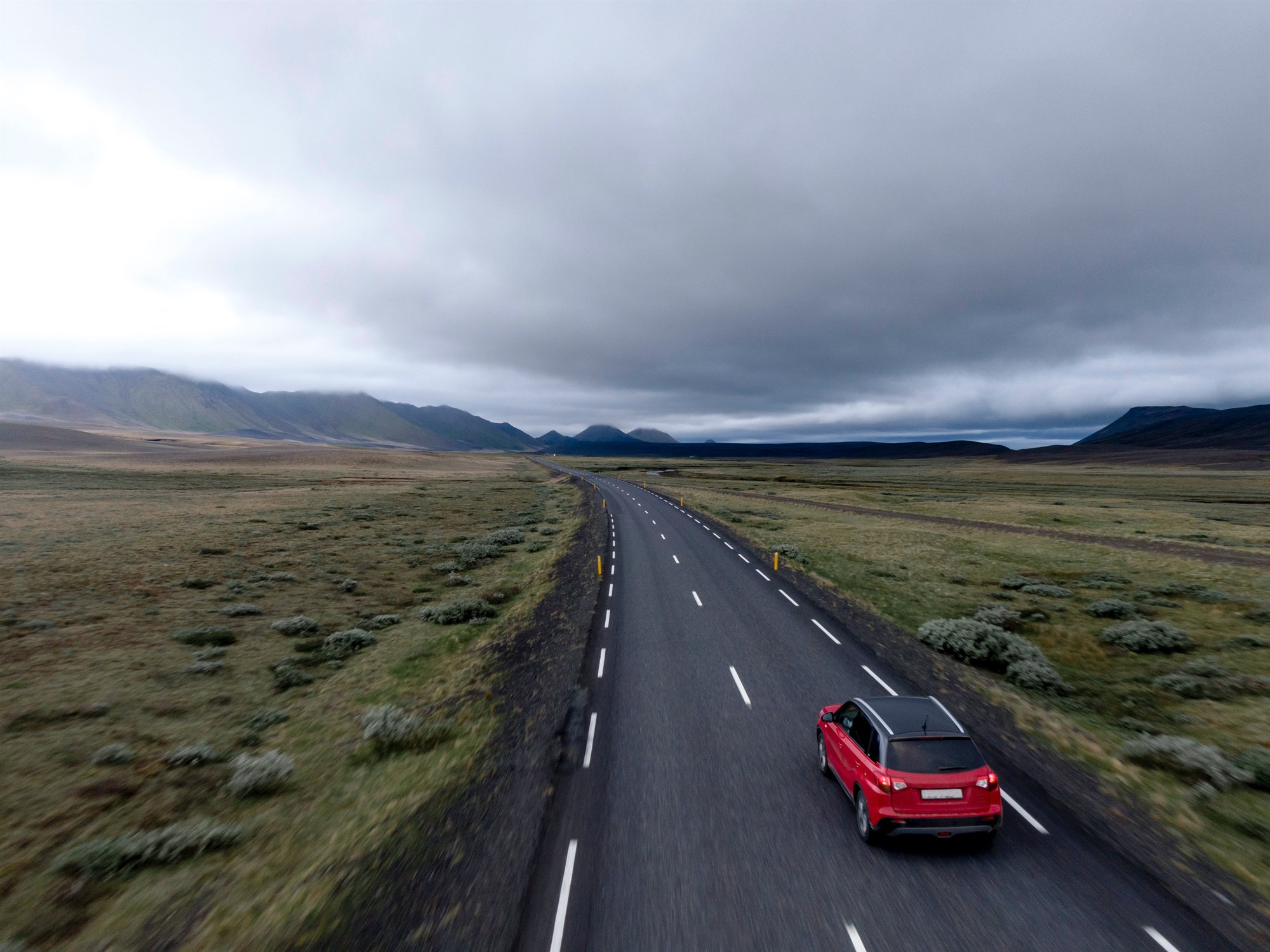While the Icelandic language is ancient and incredibly hard to learn, there are a few key phrases you can pick up before you go! From “halló” to “vinsamlegast”, get practicing.
Greetings & Basic Phrases in Icelandic
Why not prepare for your upcoming trip to Iceland by learning a few common Icelandic phrases to impress the locals?
The Icelandic language is a huge cornerstone of Icelandic culture. Due to the country’s location and the historic trend of purism when it comes to language, Icelandic has been influenced very little by external forces. Words are rarely adopted from other languages, but rather new words are coined to refer to new concepts. As a result, the modern language spoken in Iceland is thought to be very similar to that spoken when Iceland was first settled in the ninth and tenth centuries. As a result, Icelandic is a notoriously difficult language to learn.
If you are hoping to visit the fantastic landscapes and stunning scenery of Iceland, you don’t have to worry - English has become the second language of Iceland and most people you meet will speak at least a bit of English. While it is not expected that visitors to Iceland become fluent in the Icelandic language, you might want to try your hand at a few common phrases in Icelandic to impress the locals, like a simple “hello”, “good morning”, “please”, and “thank you”.
We have put together some common phrases in Icelandic that you can use on your next visit, along with some tips on reading and pronouncing new words.

Your Guide to Common Icelandic Phrases
Our helpful guide will assist you in learning some of the most common and useful Icelandic phrases to help you during your time in Iceland.
Saying Hello in Icelandic: “Halló”
This word in Icelandic is very similar to the English equivalent: “Halló” is pronounced “Hah-lo” with the stress on the second syllable of the word. Knowing how to say hello in Icelandic is a good, simple thing to learn for your visit, and people will notice you making a small effort to greet people in the native language.
How to Say Good Morning in Icelandic: “Góðan daginn”
This is another relatively simple word to pronounce for an English speaker. You might notice that this phrase has one of Iceland’s distinctive old letters, meaning that the greeting is pronounced “go-thah-n die-in’. This is a more common greeting, and using it will show friendliness and politeness to the people you greet.
Saying Goodbye in Icelandic: “Bless”
“Bless” would translate better to “bye” in English. You can also repeat this word twice for a longer phrase, similar to “Goodbye” in English.
Saying Please in Icelandic: “Vinsamlegast”
Please is a complex thing to translate into Icelandic as the language doesn’t have a direct translation. But “Vinsamlegast”, pronounced “vin-saam-leh-gast”, is used to politely ask for or request something if you wish to be polite in Iceland.
How To Say Thank You: “Takk”
“Takk” is the Icelandic equivalent of our “thanks” and is pronounced “tah-k”. There are more formal ways of thanking people, however, this should be enough for small talk in shops and restaurants in Iceland.
How To Say Sorry in Icelandic: “Afsakið”
This word is pronounced “af-sah-kith” and can mean both ‘sorry’ and ‘excuse me’ in Icelandic.
Other Important Phrases
Now that the greetings and polite phrases have been covered, you should feel comfortable exploring Iceland’s dining-out options using your newfound phrases. But you may be after some more useful Icelandic sayings and phrases when you are out and about in Iceland. When driving in Iceland, it can be easy to get lost, particularly in bad weather. These phrases can be used to ask for help or directions.
Where is…?: “Hvar er…?” (pronounced “kva-r er?”)
Airport: “Flugvöllur” (flu-kvojt-lur)
Do you speak English?: “Talar þú ensku?” (ta-lar thoo en-sku?)
Help: “Hjálp” (hya-oolp)
The Icelandic Alphabet & Pronunciation Tips
One thing that may scare you off from pronouncing Icelandic words is the new letters of the alphabet. Icelandic has retained two archaic letters, which do not appear in the English alphabet you are used to. These are ‘Þ’ (pronounced as ‘th’) and Ð, ð (pronounced ‘eth’ or ‘edgh’). Knowing how to pronounce these new letters will help you as you see road signs and place names with unfamiliar spellings.
This table shares additional tips and information regarding the Icelandic alphabet and pronunciation.
Icelandic Consonants and Their Pronunciation
|
Letter |
Name |
Pronunciation Tips |
|
B |
Bé |
Similar to English "b," but softer at the end of words. |
|
C |
Cé |
Only appears in loanwords, pronounced as "ts" or "k" depending on the word. |
|
D |
Dé |
Like English "d," but softer at the end of words. |
|
F |
Eff |
Like "f," but pronounced as "v" in certain combinations, e.g., "af." |
|
G |
Gé |
Hard "g" as in "go," but softens to a "y" sound before front vowels. |
|
H |
Há |
Like English "h," but stronger, almost like an exhale. |
|
J |
Jó |
Like English "y," as in "yes." |
|
K |
Ká |
Similar to the English "k," with more aspiration. |
|
L |
Ell |
Like English "l," but always clear, even at the end of words. |
|
M |
Emm |
Like English "m." |
|
N |
Enn |
Like English "n." |
|
P |
Pé |
Like English "p," with more aspiration. |
|
R |
Err |
Rolled "r," similar to Spanish or Italian. |
|
S |
Ess |
Like English "s," never voiced as "z." |
|
T |
Té |
Like English "t," with more aspiration |
|
V |
Vaff |
Like the English "v," but slightly softer. |
|
X |
Ex |
Only appears in loanwords, pronounced as "ks." |
|
Þ |
Þorn |
Like "th" in "thing" (unvoiced). |
Icelandic Vowels and their Pronunciation
|
Letter |
Name |
Pronunciation Tips |
|
A |
A |
Like "a" in "father." |
|
Á |
Á |
Like "ow" in "cow." |
|
E |
E |
Like "e" in "met." |
|
É |
É |
Like "yeah," but shorter. |
|
I |
I |
Like "i" in "bit." |
|
Í |
Í |
Like "ee" in "see," but shorter. |
|
O |
O |
Like "o" in "dot," but slightly rounded. |
|
Ó |
Ó |
Like "o" in "go," but with rounded lips. |
|
U |
U |
Like "u" in "put," but with rounded lips. |
|
Ú |
Ú |
Like "oo" in "moon," but shorter. |
|
Y |
Y |
Identical to "i" in "bit" (same as unaccented "i"). |
|
Ý |
Ý |
Identical to "í" (like "ee" in "see"). |
|
Æ |
Æ |
Like "eye" in "eye." |
|
Ö |
Ö |
Like "u" in "burn," but with rounded lips. |
To learn more about how to pronounce the Icelandic alphabet, watch this helpful video.
Another tip for pronouncing Icelandic words is that the stress of the word always goes on the first syllable. There is one exception to this in the Icelandic word for ‘hello’, which you’ll know from above.
You now have some common phrases at your disposal to make use of on your adventures in Iceland. Browse our fleet of cars, book your trip with us today, and start practising your pronunciation!
